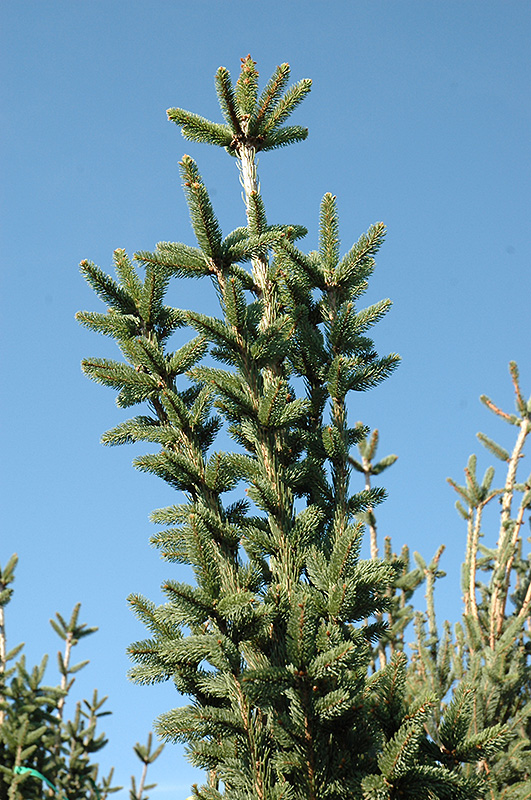Columnar Norway Spruce
Picea abies 'Cupressina'
Height: 30 feet
Spread: 10 feet
Sunlight:
![]()
Hardiness Zone: 4a
Other Names: Norwegian Spruce
Description:
This narrow fastigiate form of this spruce is in high demand for urban and boundary plantings where strong vertical accents are desired; this selection grows quite quickly and withstands snow loads better than other columnar types
Ornamental Features
Columnar Norway Spruce is primarily valued in the landscape for its rigidly columnar form. It has rich green evergreen foliage. The needles remain green throughout the winter.
Landscape Attributes
Columnar Norway Spruce is a dense evergreen tree with a strong central leader and a narrowly upright and columnar growth habit. Its relatively fine texture sets it apart from other landscape plants with less refined foliage.
This is a relatively low maintenance tree. When pruning is necessary, it is recommended to only trim back the new growth of the current season, other than to remove any dieback. Deer don't particularly care for this plant and will usually leave it alone in favor of tastier treats. It has no significant negative characteristics.
Columnar Norway Spruce is recommended for the following landscape applications;
- Accent
- Vertical Accent
Planting & Growing
Columnar Norway Spruce will grow to be about 30 feet tall at maturity, with a spread of 10 feet. It has a low canopy, and should not be planted underneath power lines. It grows at a fast rate, and under ideal conditions can be expected to live for 50 years or more.
This tree should only be grown in full sunlight. It does best in average to evenly moist conditions, but will not tolerate standing water. It is not particular as to soil type or pH, and is able to handle environmental salt. It is highly tolerant of urban pollution and will even thrive in inner city environments. This is a selected variety of a species not originally from North America.



